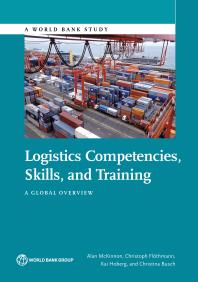Product desciption
Logistics Competencies Skills And Training A Global Overview 1st Edition Alan Mckinnon Christoph Flthmann Kai Hoberg Christina Busch by Alan Mckinnon; Christoph Flöthmann; Kai Hoberg; Christina Busch 9781464811418, 1464811415 instant download after payment.
Despite the spread of automation and new supply chain management paradigms, logistics remains dependent on a rather specific set of skills and competencies, whether for managerial, administrative, or blue-collar jobs, such as trucking or warehousing. This dependence implies that the logistical performance of businesses, industries, and nation states is strongly influenced by the quantity and quality of the workforce. Insufficient resources of a competent and properly trained workforce in logistics adversely affect the quality of service, reduce productivity in sectors dependent on logistics, and ultimately reduce trade competitiveness. While other interventions that affect logistics performance—such as international infrastructures, trade corridors, regulations, and services—have already been reviewed extensively, this report is the first to cover the contributions of human resources and explore how to develop skills and improve competencies, especially in developing countries. The study proposes a framework for the skills needed according to the logistics activity (such as transportation or warehousing) or the type and level of responsibility. Based on several sources, including recent surveys carried out by the World Bank and the Kühne Logistics University, the report uncovers where the skills constraints are according to the type of job or countries. Findings include that logistics is an industry struggling to hire skilled workers, although with differences between developed countries (where trucker shortages are more acute) and developing economies (where managerial shortages are more widespread). Typically, blue-collar logistics jobs have lower status and lower pay than blue-collar jobs in other industries; they are thus less attractive for skilled workers. In developing countries with a potentially available workforce, lack of vocational preparation for careers in logistics means that less-skilled workers are not easily re-skilled. Logistics tasks at the upper end of the occupational hierarchy and those with high information technology content often require an upskilling of employees to keep pace with new technology. Yet the problem is not confined to recruitment. The surveys point to limited resources, money, and staff time allocated to training, especially in developing countries. Realizing the promise of quality jobs from the growth of logistics worldwide requires a coordinated effort by logistics companies, professional associations, training providers, and policy makers. Through a combination of facilitation, regulation, advice, financial instruments, and land use planning, governments can exert significant influence.


